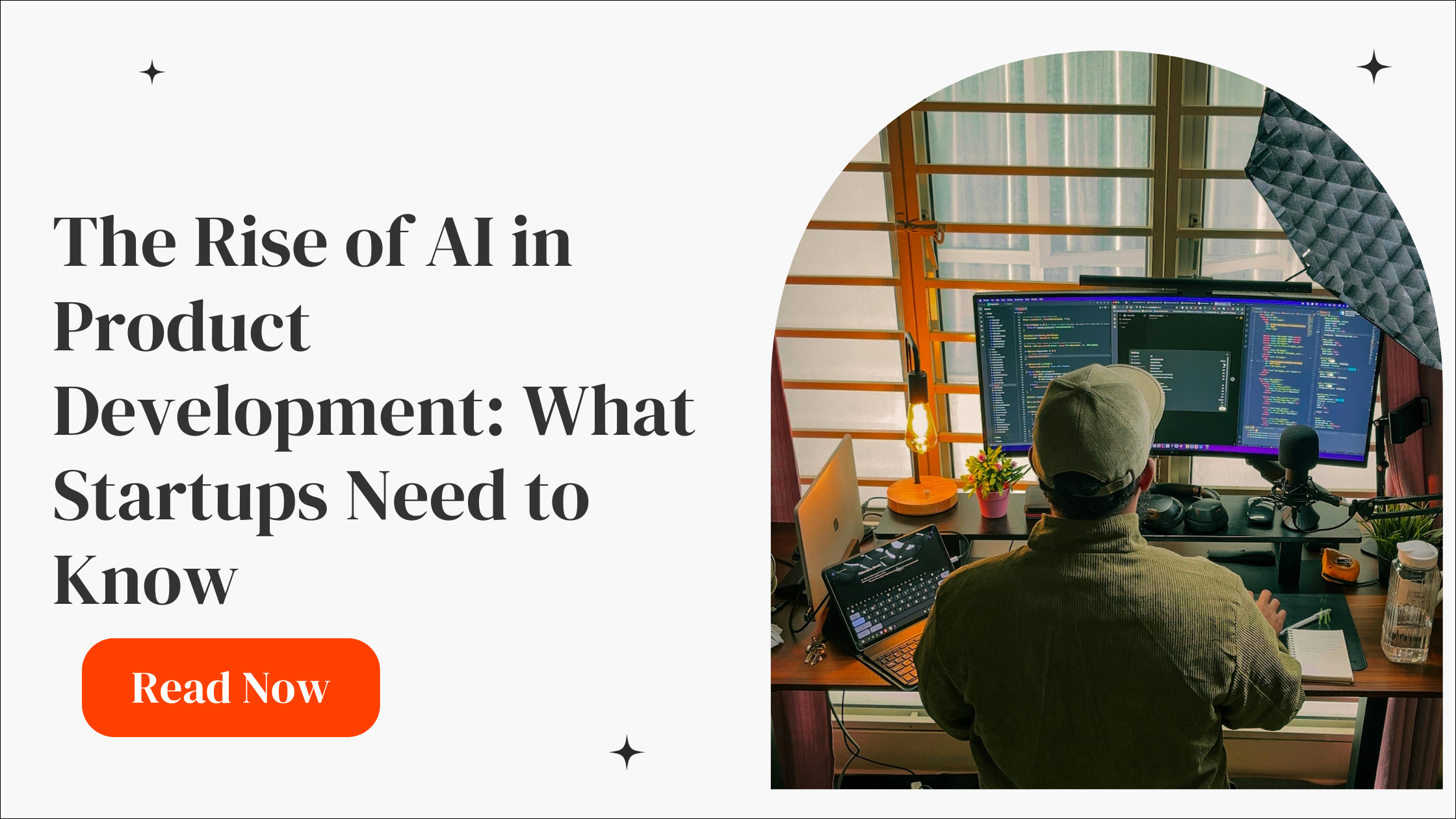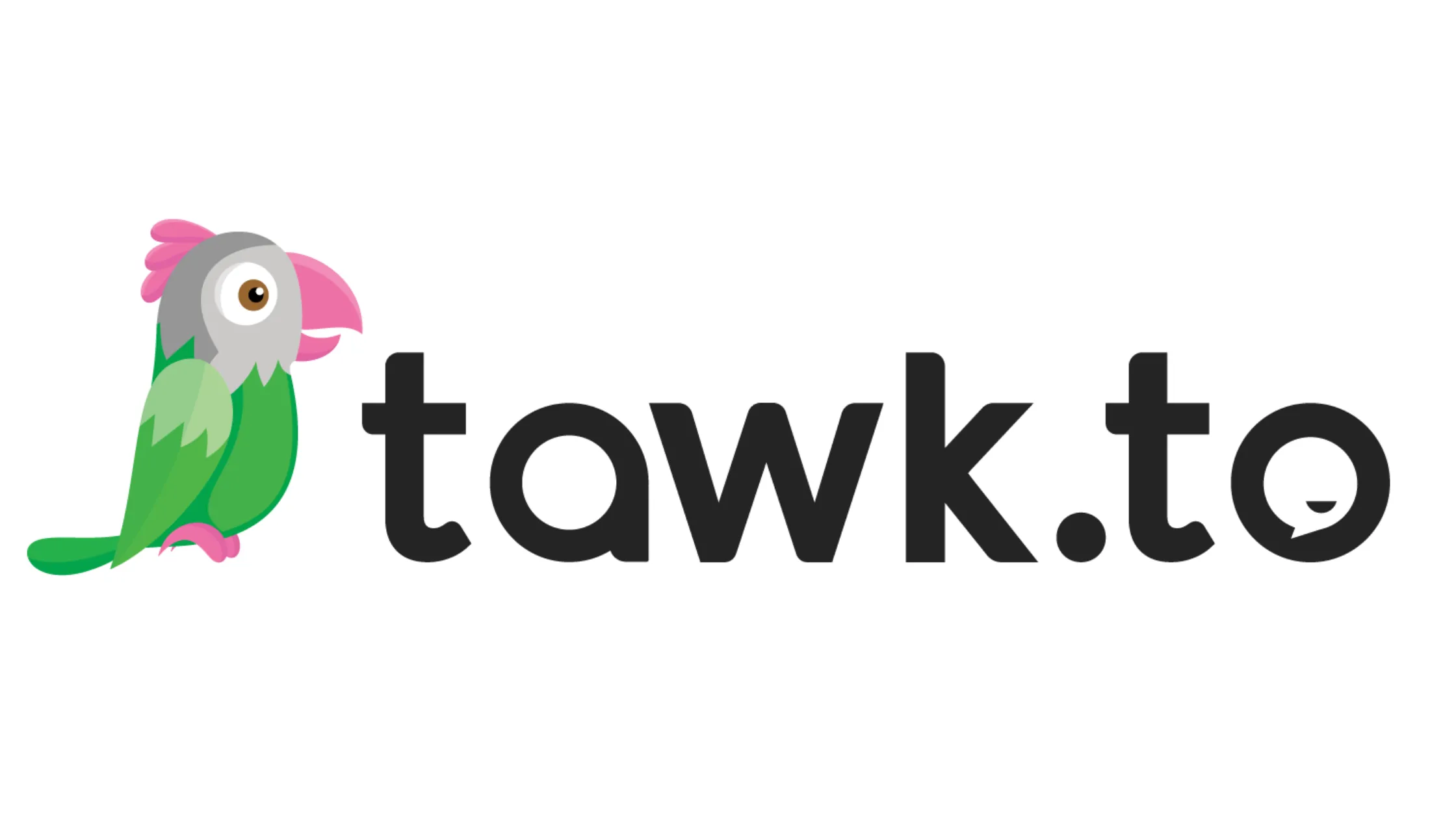
What is a Seed Startup?
Explore the world of seed startups, their impact on innovation, and how they're reshaping the entrepreneurial landscape in today's fast-paced tech industry.
In the bustling world of entrepreneurship, there's a special breed of company that's been making waves and turning heads: the seed startup. These fledgling ventures, often no more than a twinkle in their founder's eye, are the lifeblood of innovation in today's tech-driven economy. They're the underdogs, the dreamers, the risk-takers who dare to challenge the status quo and bring fresh ideas to the table.
But what exactly is a seed startup, and why should we care? Well, buckle up, because we're about to dive deep into the nitty-gritty of these game-changing enterprises. From their humble beginnings to their potential for explosive growth, we'll explore every nook and cranny of the seed startup ecosystem.
What Makes a Seed Startup Tick?
Let's face it, folks – not all startups are created equal. A seed startup is like a newborn baby in the business world: full of potential, but still finding its feet. These companies are typically in their earliest stages of development, often with nothing more than a brilliant idea and a whole lot of enthusiasm.
The DNA of a Seed Startup
So, what sets a seed startup apart from its more established cousins? For starters, they're usually:
- Pre-revenue or with minimal revenue
- Focused on product development and market validation
- Seeking initial funding to get off the ground
- Comprised of a small, tight-knit team (sometimes just the founders)
- Agile and adaptable, ready to pivot at a moment's notice
These characteristics give seed startups a unique edge in the fast-paced world of tech innovation. They're nimble enough to adjust course quickly, unencumbered by the bureaucracy that often plagues larger organizations.
The Funding Conundrum: How Seed Startups Stay Afloat
Now, you might be wondering, "How on earth do these plucky upstarts keep the lights on?" It's a fair question, and the answer lies in the magic of seed funding.
Decoding Seed Funding
Seed funding is the lifeblood of any seed startup. It's the initial capital injection that helps transform a brilliant idea into a tangible product or service. This early-stage funding can come from various sources:
- Friends and family: The first port of call for many entrepreneurs
- Angel investors: High-net-worth individuals with a penchant for risk
- Crowdfunding: Harnessing the power of the masses
- Accelerators and incubators: Programs that provide funding, mentorship, and resources
- Early-stage venture capital firms: For those lucky few with truly groundbreaking ideas
But here's the kicker – securing seed funding isn't just about the money. It's about validation. When someone's willing to put their hard-earned cash on the line for your idea, it's a vote of confidence that can be worth its weight in gold.
The Rollercoaster Ride of Building a Seed Startup
Let me tell you, starting a seed startup isn't for the faint of heart. It's a wild ride that'll test your mettle and push you to your limits. But for those brave souls who dare to take the plunge, the rewards can be astronomical.
The Highs and Lows of Startup Life
One day you're on top of the world, convinced you're about to change the game. The next, you're questioning every decision you've ever made. It's a emotional rollercoaster that'd make even the most hardened thrill-seeker queasy. But that's the beauty of it – the constant challenge, the thrill of the unknown, the possibility of creating something truly revolutionary.
Overcoming the Odds
Let's not sugarcoat it – the odds are stacked against seed startups. The failure rate is high, and the competition is fierce. But for every thousand failures, there's a success story that makes it all worthwhile. Think about it – every tech giant you can name was once a seed startup. Facebook, Google, Amazon – they all started with nothing more than an idea and a dream.
The Impact of Seed Startups on Innovation
Now, you might be thinking, "That's all well and good, but what's the big deal? Why should I care about seed startups?" Well, let me tell you – these little engines of innovation are the driving force behind technological progress.
Disrupting the Status Quo
Seed startups aren't just businesses – they're catalysts for change. They challenge established norms, push boundaries, and force larger companies to up their game. Without the constant pressure from these upstarts, innovation would stagnate, and we'd all be stuck using flip phones and dial-up internet.
Creating New Markets
But it's not just about improving existing technologies. Seed startups often create entirely new markets. Think about it – before Airbnb, who would've thought of turning their spare room into a hotel? Before Uber, did anyone imagine hailing a ride with the tap of a button? These companies didn't just disrupt existing industries – they created entirely new ones.
The Ecosystem that Nurtures Seed Startups
A seed startup doesn't exist in a vacuum. It's part of a complex ecosystem that supports and nurtures innovation. This ecosystem includes:
- Universities and research institutions: The breeding grounds for new ideas
- Coworking spaces: Affordable offices and networking opportunities
- Mentorship programs: Guidance from those who've been there and done that
- Networking events: Opportunities to connect with investors, partners, and customers
- Government initiatives: Policies and programs designed to support entrepreneurship
This ecosystem is crucial for the success of seed startups. It provides the fertile ground in which these innovative ideas can take root and grow.
The Global Impact of Seed Startups
While Silicon Valley might be the first place that comes to mind when you think of startups, the truth is that seed startups are making waves all over the world.
Emerging Startup Hubs
From Tel Aviv to Tokyo, Berlin to Bangalore, startup hubs are popping up in every corner of the globe. Each of these hubs has its own unique flavor, influenced by local culture, resources, and challenges. This diversity is a boon for innovation, bringing fresh perspectives and novel solutions to global problems.
Tackling Global Challenges
And speaking of global problems, seed startups are at the forefront of addressing some of the world's most pressing issues. From climate change to healthcare access, education to food security, there's a seed startup out there working on a solution. These companies aren't just chasing profits – they're trying to make the world a better place.
The Future of Seed Startups
As we look to the future, it's clear that seed startups will continue to play a crucial role in shaping our technological landscape. But what challenges and opportunities lie ahead?
Emerging Technologies
The rapid pace of technological advancement is both a challenge and an opportunity for seed startups. Artificial intelligence, blockchain, quantum computing – these cutting-edge technologies are opening up new frontiers for innovation. The seed startups that can harness these technologies effectively will be the ones to watch in the coming years.
Changing Funding Landscape
The way seed startups are funded is also evolving. We're seeing the rise of new funding models like Initial Coin Offerings (ICOs) and equity crowdfunding. These novel approaches are democratizing startup investment, allowing a broader range of people to get in on the ground floor of the next big thing.
The Human Element: What It Takes to Lead a Seed Startup
At the heart of every successful seed startup is a team of dedicated individuals willing to pour their blood, sweat, and tears into making their vision a reality. But what does it take to lead such a venture?
The Founder's Mindset
Being the founder of a seed startup isn't just a job – it's a way of life. It requires:
- Resilience: The ability to bounce back from setbacks
- Vision: A clear idea of where you want to go and how to get there
- Adaptability: The flexibility to change course when necessary
- Leadership: The skill to inspire and guide a team
- Passion: An unwavering belief in your idea and its potential
These qualities aren't just nice-to-haves – they're essential for navigating the choppy waters of startup life.
Building the Right Team
But even the most talented founder can't do it alone. Building the right team is crucial for the success of any seed startup. This means finding people who not only have the necessary skills but also share your vision and values. In the early stages, every hire is critical – you need people who can wear multiple hats and aren't afraid to get their hands dirty.
The Ethical Considerations of Seed Startups
As we celebrate the innovation and disruption brought about by seed startups, it's important to also consider the ethical implications of their work.
Balancing Growth and Responsibility
In the race to scale and capture market share, it's easy for startups to lose sight of their ethical responsibilities. We've seen numerous examples of startups that have grown too fast and too recklessly, causing harm to users, employees, or society at large. As seed startups grow, they must strive to balance their drive for growth with a sense of social responsibility.
Privacy and Data Concerns
Many of today's most promising seed startups are in the tech sector, dealing with vast amounts of user data. With this comes a tremendous responsibility to protect user privacy and handle data ethically. As these startups grow, they must prioritize data security and transparency, even if it means slower growth or lower profits in the short term.
The Role of Education in Fostering Seed Startups
Education plays a crucial role in nurturing the next generation of seed startup founders and employees. But are our current educational systems up to the task?
Rethinking Entrepreneurship Education
Traditional business education often falls short when it comes to preparing students for the realities of startup life. There's a growing movement to integrate more practical, hands-on entrepreneurship education into curricula at all levels. This includes things like:
- Startup incubators and accelerators within universities
- Entrepreneurship competitions and hackathons
- Internship programs with local startups
- Mentorship programs pairing students with experienced entrepreneurs
These initiatives aim to give students the skills and mindset they need to thrive in the fast-paced world of seed startups.
Lifelong Learning in the Startup World
But education doesn't stop at graduation. The world of seed startups is constantly evolving, and staying ahead of the curve requires a commitment to lifelong learning. Successful startup founders and employees are those who are always hungry for knowledge, whether it's keeping up with the latest tech trends or honing their leadership skills.
The Ripple Effect: How Seed Startups Impact Local Economies
While we often focus on the global impact of successful startups, it's important not to overlook their effect on local economies.
Job Creation and Economic Growth
Successful seed startups can be powerful engines of job creation and economic growth in their local communities. As they grow, they not only create direct jobs but also support a whole ecosystem of ancillary businesses – from local cafes and restaurants to professional services firms.
Brain Drain or Brain Gain?
The presence of a thriving startup ecosystem can also impact talent retention and attraction in a region. In some cases, it can help reverse "brain drain" by providing exciting opportunities for local talent. On the flip side, it can also attract talent from other areas, bringing fresh ideas and perspectives to the local economy.
The Dark Side of Seed Startups
While we've spent a lot of time extolling the virtues of seed startups, it's important to acknowledge that they're not without their drawbacks.
The Pressure Cooker Environment
The high-pressure, high-stakes environment of a seed startup can take a toll on mental health. Long hours, constant uncertainty, and the weight of responsibility can lead to burnout, anxiety, and depression. It's crucial for startup founders and employees to prioritize their mental health and maintain a healthy work-life balance.
The Hype Machine
In the world of seed startups, there's often a fine line between optimism and hype. The pressure to attract funding and users can sometimes lead startups to overpromise and underdeliver. This not only hurts the startups themselves but can also erode trust in the broader startup ecosystem.
Embracing Failure in the Seed Startup World
In the world of seed startups, failure is not just common – it's almost expected. But how we view and handle failure can make all the difference.
The Value of Failure
In the startup world, failure is often seen as a badge of honor – a sign that you've been in the trenches and learned some hard lessons. And there's truth to this. Each failure provides valuable lessons that can inform future success. The key is to fail fast, learn quickly, and pivot when necessary.
Creating a Culture that Embraces Risk
For seed startups to thrive, we need to create a culture that not only tolerates risk but embraces it. This means destigmatizing failure, celebrating bold attempts (even when they don't succeed), and providing support for entrepreneurs who are willing to take chances.
Partnering for Success: How Horizon-Labs.co Empowers Seed Startups
As we've explored, the journey of a seed startup is fraught with challenges, but also brimming with potential. From securing funding to building the right team, every step is crucial. That's where a trusted partner like Horizon-Labs.co comes in, offering a beacon of hope for startups navigating these turbulent waters.
Led by a Y-Combinator alum, Horizon-Labs.co brings a wealth of experience and insight to the table. They've been in the trenches, faced the same challenges, and emerged victorious. This firsthand experience is invaluable for founders who need more than just a service provider – they need a partner who understands their vision and can help bring it to life. With Horizon-Labs.co, startups gain access to a team of trusted and experienced product builders who can turn ideas into reality.
Don't let your groundbreaking idea languish in obscurity. If you're a startup founder looking to build your tech better, faster, and cheaper than the competition, it's time to reach out to Horizon-Labs.co. Their team of seasoned professionals is ready to support you at every step of your journey, from concept to launch and beyond. Contact Horizon-Labs.co today and take the first step towards turning your seed startup into the next big thing. Your future success story starts here.
Frequently Asked Questions (FAQs) about Seed Startups:
Q: What's the typical valuation range for a seed startup?
A: Seed startup valuations can vary widely, but typically range from $1 million to $10 million. However, in hot markets or for startups with exceptional traction, valuations can go higher. It's important to note that these valuations are often based more on potential than current financials, as most seed startups are pre-revenue or have minimal revenue.
Q: How long does the seed stage usually last?
A: The seed stage generally lasts between 6 to 18 months. This period can be shorter or longer depending on factors like the industry, product complexity, and fundraising success. The goal is to use this time to achieve key milestones that position the startup for a Series A round or to reach profitability.
Q: What's a typical equity range offered to early employees in a seed startup?
A: Early employees in seed startups often receive equity ranges from 0.1% to 2% of the company. Key hires or those joining very early might receive more. The exact amount depends on factors like the employee's experience, the startup's funding stage, and the total equity pool available. It's worth noting that equity packages often come with a 4-year vesting schedule and a 1-year cliff.
Q: How do convertible notes work in seed funding?
A: Convertible notes are a popular funding instrument for seed startups. They're essentially loans that convert to equity at a future funding round. The key terms include the principal amount, interest rate, maturity date, discount rate, and valuation cap. The discount and cap provide upside for early investors when the note converts. This method allows startups to defer valuation discussions until they have more traction.
Q: What's the difference between pre-seed and seed funding?
A: Pre-seed funding typically comes before a startup has a fully developed product or significant traction. It's often smaller amounts (usually under $500k) used to build an MVP or prove initial concept. Seed funding, on the other hand, is for startups with an MVP and some early traction, aiming to refine their product and find product-market fit. Seed rounds are usually larger, ranging from $500k to $2 million or more.
Q: How important is having a co-founder for a seed startup?
A: While not absolutely necessary, having a co-founder is often beneficial for seed startups. Many investors prefer teams with complementary skills. Co-founders can provide emotional support, share the workload, and bring diverse perspectives. However, solo founders can also succeed if they have a strong network and can build a solid team. The key is to ensure all crucial roles are filled, whether by co-founders or early employees.
Q: What are some alternatives to equity-based funding for seed startups?
A: Several alternatives exist for seed startups not ready or willing to give up equity. These include:
- Revenue-based financing: Repayments are tied to monthly revenue.
- Crowdfunding: Platforms like Kickstarter can help validate demand and raise funds.
- Grants: Particularly useful for startups in scientific or social impact areas.
- Venture debt: Loans specifically designed for early-stage companies.
- Strategic partnerships: Collaborating with established companies for resources and market access.
Q: How do seed startups typically approach customer acquisition?
A: Seed startups often focus on low-cost, high-impact strategies for customer acquisition. Common approaches include:
- Content marketing and SEO to drive organic traffic
- Leveraging personal networks for initial users
- Participating in industry events or startup pitch competitions
- Using social media to build a community around the product
- Implementing referral programs to encourage word-of-mouth growth
- Focusing on a niche market to establish a strong foothold before expanding
Q: What are some key metrics investors look at when evaluating seed startups?
A: While specific metrics vary by industry, common ones include:
- Monthly Recurring Revenue (MRR) or Annual Recurring Revenue (ARR)
- Customer Acquisition Cost (CAC)
- Lifetime Value of a Customer (LTV)
- Churn rate
- Month-over-month growth rate
- User engagement metrics (e.g., daily active users, time spent in app)
- Burn rate and runway. Investors also look at the team's experience, market size, and competitive landscape.
Q: How can seed startups protect their intellectual property?
A: Intellectual property protection for seed startups can involve:
- Patents: For novel inventions or processes
- Trademarks: To protect brand names and logos
- Copyrights: For original works like software code or content
- Trade secrets: For confidential business information
- Non-disclosure agreements (NDAs): When discussing ideas with potential partners or investors, It's often advisable to consult with an IP lawyer to develop a comprehensive strategy tailored to the startup's specific needs and budget.
Q: What are some common reasons seed startups fail?
A: Common reasons for seed startup failure include:
- Running out of cash before achieving significant traction
- Lack of product-market fit
- Team conflicts or inability to attract/retain key talent
- Regulatory hurdles or legal issues
- Fierce competition or market saturation
- Scaling too quickly before establishing a sustainable business model
- Inability to adapt to changing market conditions or customer needs.
Whether you're validating an idea, scaling an existing product, or need senior engineering support—We help companies build ideas into apps their customers will love (without the engineering headaches). US leadership with American & Turkish delivery teams you can trust.
Need Developers?
We help companies build ideas into apps their customers will love (without the engineering headaches). US leadership with American & Turkish delivery teams you can trust.
















For Startups & Founders
We've been founders ourselves and know how valuable the right communities, tools, and network can be, especially when bootstrapped. Here are a few that we recommend.

Mistakes to Avoid When Building Your First Product
Learn the key mistakes founders make when building their first product—and how to avoid them for a faster, smoother launch.
Read more
The Rise of AI in Product Development: What Startups Need to Know
Learn how AI is transforming product development for startups. From MVPs to scaling, here’s what founders need to know in today’s AI-driven world.
Read more
No-Code vs. Custom Development: Which is Right for Your Startup?
Weighing no-code vs. custom development? Learn which is right for your startup depending on stage, budget, and product complexity.
Read more
What is Mixpanel?
Learn how Mixpanel helps startups track user behavior to improve products and accelerate growth with clear data-driven insights.
Read more
How Tawk.to Can Boost Your Startup’s Customer Support Game
Learn how Tawk.to can benefit startups by enhancing customer support and engagement. Perfect for early-stage founders!
Read more
Grow Your Startup With Anthropic's AI-Powered Tools
Discover how Anthropic's cutting-edge AI tools can accelerate your startup's success. Learn about their benefits and see why they can be trusted by startups.
Read more
What is Data-Driven VC?
Learn what a data-driven VC means and how such investors can benefit your startup’s growth and fundraising journey.
Read more
What is Blockchain?
A beginner-friendly guide on blockchain for startup founders, covering key concepts, benefits, challenges, and how to leverage it effectively.
Read more
What is Cybersecurity?
Learn cybersecurity basics tailored for startup founders. Understand key risks, best practices, and how to protect your startup from tech threats.
Read more
What is Seedcamp?
Learn what Seedcamp is, how its European seed fund and accelerator program work, and how founders can use its capital, mentorship, and network to scale their st
Read more
What is AngelList?
AngelList is a prime platform connecting startup founders to investors, talent, and resources to accelerate early-stage growth.
Read more
What is 500 Startups?
Learn what 500 Startups (now 500 Global) is, how its accelerator and seed fund work, and when founders should consider it—plus tips for early-stage startups.
Read more.png)